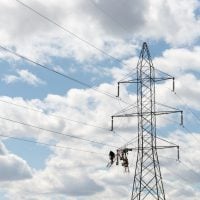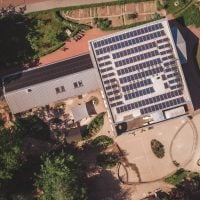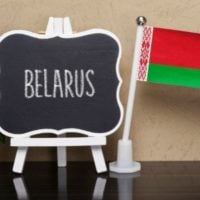Deadline: 17-Jun-2024
The Western Balkan Fund (WBF) is accepting proposals for the Empowering Regional Cooperation (ERC) Grants.
This is the 7th Call for Proposals of the Western Balkans Fund, co-funded by the European Union, IPA – Instrument for Pre-Accession Assistance.
The Empowering Regional Cooperation (ERC) Grants provide financial support for projects that align with WBF’s goals. These grants aim to enhance regional cooperation, promote networking, and encourage innovative approaches to foster reconciliation. The initiative improves CSO performance and engagement in regional cooperation, supports CSOs in advocating for marginalized groups, and facilitates reconciliation processes. ERC empowers underrepresented communities to take on leadership roles and contribute to decision-making. The grants also monitor the participation of marginalized groups and encourage higher inclusion rates for a more diverse civil society landscape.
Objectives and Areas of Intervention
- The overall objective of this initiative is to strengthen regional partnerships and enhance Civil Society Organization (CSO) involvement in the Western Balkans, promoting democracy and active citizenship.
- Specific objectives include:
- Establishing partnerships among CSOs across the region to work on shared challenges.
- Boosting CSO capacity through training and support to help them actively promote inclusive democracy.
- Promoting inclusivity by supporting marginalized groups such as women, youth, ethnic minorities, and vulnerable populations in decision-making and advocacy.
- Outcomes include:
- Regional partnerships are established and reinforced by addressing common challenges and achieving shared goals.
- Regional actors’ capacities are increased through training activities, awareness campaigns, and research for policy development targeting specific audiences.
- Increased inclusion of marginalized groups in regional activities, empowering underrepresented communities to take on leadership roles.
- Enhanced inclusiveness in civil society to better represent the diverse needs and perspectives of communities.
- The initiative target groups are all non-state, non-profit organizations such as: CSOs, business and media associations, educational and cultural associations, sport associations, and more. However, applicants are encouraged to engage, other than partners, key stakeholders including WBF founders, local governments, international donors, and the communities themselves.
- The primary beneficiaries of the action are:
- CSOs, foundations, non-for-profit organizations, regional networks.
- Business associations such as business clusters, agriculture associations, chambers of commerce, tourist association.
- Media associations such as organizations working with media, journalism and freedom of expression.
- Educational associations such as association of cultural institutions, sport associations, etc.
- The final beneficiaries are communities in the Western Balkans 6, who will experience improved neighborly relations, harmony, and regional cooperation on the path towards EU integration.
- The key stakeholders of this action include but are not limited to, the WBF founders and Secretariat, CSOs, grassroot organisations, local governments/authorities, international donor organizations, media, and the communities themselves. WBF founders, more specifically Ministries of Foreign Affairs (MFA), acknowledge the importance of enhancing the WBF’s role in addressing regional cooperation through bottom-up approach where the inputs are collected and transmitted to a decision-making level.
- ERC Grants areas of intervention for this call represent the key priorities and strategic objectives identified by WBF. Projects can cover one or several of the following areas of intervention:
- Cultural cooperation: Fostering regional cultural identity and intercultural dialogue in the Western Balkans by promoting cooperation in sustainable initiatives, activities, and projects to embrace a shared commitment to both environmental stewardship and peaceful coexistence and nurture nature and cultural bonds for a harmonious and eco-conscious region.
- Education and Scientific exchanges: Advancing regional projects and activities in education development, capacity building, and mobility to foster growth and extension with a commitment to the green agenda by integrating environmentally conscious practices into educational initiatives and promoting scientific exchanges for sustainable regional development.
- Sustainable Development: Promoting regional cohesion and fostering institutional partnerships for sustainable economic development through integration of green agenda into environmental responsible practices, ensuring a harmonious balance between regional growth and ecological well-being.
Funding Information
- The overall indicative amount made available under this Call for Proposals is EUR 360,000.
- The EU/WBF Joint Action will fund up to maximum grant per project of 30,000 EUR.
- Minimum requested amount of the grant must be 20,000 EUR.
Duration
- The project duration may not be lower than 3 (three) months nor exceed 7 (seven) months, including Reporting Period (last 30 days within the implementation timeframe).
Eligible Types of Activities
- Capacity Building Activities: may be defined as a planned comprehensive effort to increase effectiveness and viability by targeting as direct beneficiaries the CSOs. Effectiveness is the measure of how well an organisation is doing the right things to accomplish its purpose. It is determined by whether an organisation has the right framework and is following the right approach to achieve its core objective.
- Advocacy Activities: include actions that contribute to a more conducive environment for organisations by lobbying and advocating to decision-makers, media outreach, citizen education, and various forms of civic engagement.
- Networking Activities: gatherings aimed at fostering professional and knowledge sharing relationships among organisations enabling them to exchange ideas, broaden connections, and discover opportunities.
- Indicative types of activities which may be financed under this Call for Proposals are given below (please note that this list is non-exhaustive):
- Cultural cooperation
- Cultural Competency Training: Provide training sessions on cultural competency, diversity awareness, and intercultural communication.
- Cross-Cultural Dialogue Workshops: Organize workshops and facilitated dialogues that bring together representatives from diverse cultural backgrounds to discuss shared values, traditions, and challenges.
- Capacity Building in Cultural Management: Offer training programs focused on building the capacity in cultural management, including project planning, implementation, and evaluation within the context of cultural cooperation initiatives.
- Cultural Exchange Programs: Facilitate cultural exchange programs that enable interaction with organizations from different cultural backgrounds.
- Education and Scientific exchanges
- Training Workshops: Offer workshops and training sessions for educators and trainers within organisations to enhance their teaching skills, pedagogical techniques, and subject knowledge.
- Curriculum Enhancement Programs: Support in developing and implementing innovative educational curricula that integrate scientific concepts, critical thinking skills, and practical applications.
- Scientific Research and Inquiry Projects: Facilitate scientific research and inquiry projects for students and educators within organisations.
- Capacity Building in Science Communication: Provide training in science communication techniques to help CSOs effectively communicate scientific concepts and findings to diverse audiences.
- Sustainable Development
- Training on Sustainable Development Goals (SDGs): Provide workshops and training sessions to CSOs on the United Nations Sustainable Development Goals (SDGs), their relevance to local contexts, and strategies for integrating them into organizational planning and programming.
- Project Management Workshops: Offer training programs focused on project management skills tailored to sustainable development initiatives.
- Capacity Building in Advocacy and Policy Influence: Equip organisations with the skills and knowledge needed to advocate for policies and practices that promote sustainable development at local, national, and international levels.
- Community Empowerment Initiatives: Support in developing community empowerment programs aimed at building local capacity to address sustainable development challenges.
- Cultural cooperation
Location
- Activities should take place in the Western Balkans Region.
- Activities should take place in at least two of the Contracting Parties of WBF.
- Civil Society Organizations and associations such as educational, media, culture, sports and more, in Albania, Bosnia and Herzegovina, Kosovo, Montenegro, North Macedonia, and Serbia are eligible to apply.
Eligibility Criteria
- Eligibility of Applicants
- To be eligible to apply for the ERC grant, the lead applicant must be:
- a legal person, (natural persons or entities without legal persons are not eligible) and
- established in one or more of the WBF Contracting Parties, and
- non-profitmaking, and
- Be a specific type of organisation from one of the following categories:
- A Civil Society Organization (CSO/NGO)
- A business association such as: association of enterprises, agriculture association, chamber of commerce, tourism association, etc.
- Media associations such as: organizations working with media, journalism, and freedom of expression.
- Educational associations such as: association of cultural institutions, sport associations, etc.
- Number of applications and grants that could be awarded to lead applicant and co-partners: “Under this Call for Proposal, an applicant may apply multiple times as Lead or be partner in several applications, however, may be awarded only 1 (one) grant (highest scored) as Lead Applicant and/or 1 (one) grant (highest scored) as Project Partner.”
- The lead applicant shall remain committed to successfully implement the action and be financially engaged, by providing a direct financial contribution (co-financing to the project). Lead Applicant may choose to share the expenditures with the Project Partners, however the Lead Applicant is the sole responsible, as contract signatory with WBF, for the sound implementation, funds expenditure and reporting under this call for proposal.
- The lead applicant shall prove (through experience cards in the application) ongoing/active experience in implementing Donor Funder projects at least in the last three (3) years.
- To be eligible to apply for the ERC grant, the lead applicant must be:
- Eligibility of Partnership
- Partnership is required to apply for the ERC Call for Proposal. Partnerships must include Civil Society Organizations (CSOs) or institutions that align with the project’s goals:
- Diverse Representation: Partnerships must include participants from at least four (4) different WBF Contracting Parties (CPs).
- Partnership Structure: Each partnership should have one (1) lead applicant and at least three (3) project partners from WBF Contracting Parties to ensure diversity and effectiveness in tackling regional challenges.
- Lead Applicant’s Role: The lead applicant is responsible for submitting the project proposal, signing the Declaration by the Lead Applicant, signing the grant agreement with the WBF, and representing the partnership. Partners must meet the lead applicant’s eligibility criteria, except for experience.
- However, partnerships formed from more than 4 CPs are encouraged to apply and will be prioritized when evaluating the proposals.
- Partnership is required to apply for the ERC Call for Proposal. Partnerships must include Civil Society Organizations (CSOs) or institutions that align with the project’s goals:
For more information, visit WBF.









































